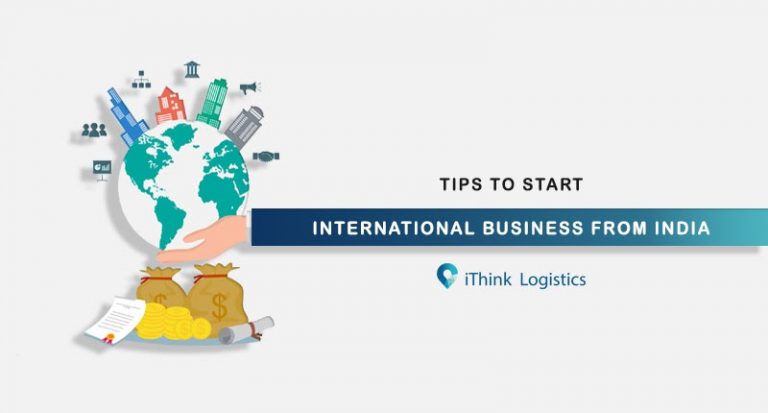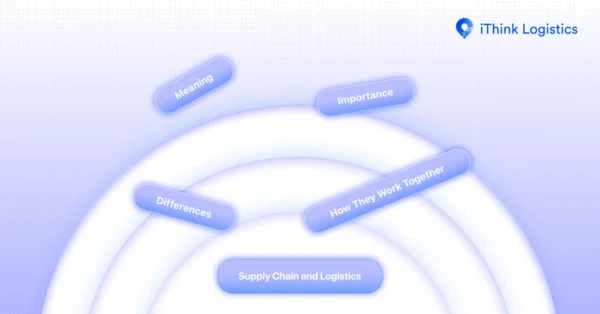The market that India has is huge enough for almost everything and every business but not spacious enough for that many entrepreneurs. Starting an international business from India can be critical sometimes and overwhelming too because of its slow growth rates. Business owners that mainly focus on the growth aspect can work with the rest of the world as their oysters.
- Advantages of Starting an International Business
- Things to keep in mind before starting an international business
- Will the product make huge sales in the targeted country?
- Does the targeted market is already familiar with similar products as yours?
- Are you comfortable with the market in that country?
- How is the infrastructure there?
- Business practices in India
- Planning business meetings
- Small talk and greeting
- The practice of Business gifts
- Social protocols in meetings
- Challenges of doing International business in India
- Cross Border Trade Challenges
- Finding your counterparties and partners
- Payments
- Local expertise
- Patience
- How to start an international business?
- Create a Strategy
- Gather Enough Information
- Have knowledge about Distribution
- Get familiar with the market
- Know about financing sources
- Know every last thing about packaging
- Exporting mistakes
- Failing to properly strategies your plan
- Do not chase every inquiry
- Assuming your products will work everywhere
- Assuming business can be done in one language
- Conclusion
Advantages of Starting an International Business
Going international not only provides a business with thousands of growth opportunities but also helps them gain some potential valued customers. It is very important for every importer as well as an exporter to levitate their business across the world. It could be the ultimate key to fast growth opportunities. Many advantages of starting an international business come with it, some are:
- The foremost advantage that will greatly influence your business is that you can increase the lives of the sales considerably as you will find newer markets to start your sales all over again.
- You can stop being dependent on the markets that you set up in your country.
- If your business is scrapped by certain seasonal fluctuations or changes in demands, you can easily re-stabilize your business by tapping other markets that synchronize perfectly with your market needs.
- You can get a thorough visualization of the corporate market and you can exploit it to your benefit.
- Lastly, as you enter a global market your imaginary grounds for your business will increase vastly and thus you will find ways to compete with foreign companies. You can even take the battle to your benefit.
The main reason to go global is to increase and improve potentiality when it comes to growth and expansion in a competitive market. As far as opportunities are, concerned India is sadly falling behind the inconsiderable amount. Even doing business in India in 2018 did not see anything that was quite unpredictable or “out of the blue”. Even though there are a lot of hot selling products in India, as far as international markets are concerned, there are so many opportunities dwelling out there that it is not even possible to list it all here or anywhere.
Nevertheless, the obvious markets that come with many opportunities are the markets in Mexico, Canada, Japan, and Europe. However, these ones just scratch the surface of the underlying huge markets. There are various other less competitive and fast-growing companies.
All you need is to spin the globe to find thousands of opportunities levitating all around for you to sell something, or even start a whole business. You just need to have the right start to everything; success comes leaping to your lap. Of course, unearthing something huge needs a bit of effort but it is all worth it at its climax.
We can all agree with the fact that growing a business in a foreign country can be excessively risky. However, what if all your aspirations work well in a foreign land? What if your concept is the one thing missing in a foreign place? You cannot afford to overlook all these questions just to avoid risk. Wesley Johnston who is a director at the centre of business and industrial marketing and a valued professor of marketing at Georgia State University, Atlanta, strongly highlights some facts that can be either a breakpoint or even a making point for your business. Here are some questions and tips on starting an international business that you need to consider before getting started:
Things to keep in mind before starting an international business
There are a lot of factors that affect buying behavior of a customer. So make sure you keep these points in mind before starting an international business from India.
Will the product make huge sales in the targeted country?
You need to assess your products and services and analyze accordingly whether your products can be a breakthrough for the targeted place. For this, you need to have a thorough visualization and information about the targeted market, their people, the culture they follow, their religious beliefs, their values, and most importantly their taste and preferences. The public needs to embrace your product.
Does the targeted market is already familiar with similar products as yours?
If the products or services you are providing are an exact replica of some other similar category products, then there is a huge possibility that your products might not sell according to your desires. It is very important that you analyze the other available products in the same market before you introduce yours and start an international business. Be prepared to invest considerably in consumer education. However, the brighter side to it is that if your product concept is unique then it will become synonymous with your company chain.
Are you comfortable with the market in that country?
This is an important question, which you need to ask yourself. If you are not comfortable with the marketplace then there is no way you can properly grow your business there. You need to have proper knowledge about the language and culture that the country follows and if you are perfectly fine with it then you are ready to market theirs.
How is the infrastructure there?
If you are planning on starting an international business in India, you must think that can you afford to have those foreign style accommodations? How are the roads and streets? You need to be very precise about your abilities and afford abilities when it comes to infrastructures.
If you do not have the proper answers for each of the above questions with the first country you were considering, do not lose hope thinking your idea is not good enough. It could simply mean that the choice of that particular foreign country was wrong. It is a big world. There are so many potential countries where you can form your business. Every idea has to work somewhere or the other. It is an inevitable fact.
Along with the immense opportunities, going global holds many challenges that are way harder to overcome. From immense opportunities to being stomped by currency fluctuations, international business throws many risks on your path to success that domestic people will never know or face. You can have the shiny ring of growth but only if you overcome the pitfalls. That is how every business works.
Business practices in India
The approach in Indian business practice is very friendly and personal levels. As it is a laid-back procedure, the main key is to keep patience and be flexible enough to adapt to the process. Here English is used as a business language as it is much easier this way because India has several languages besides just “Hindi”.
India is a hierarchical society, so the factors like roles and status matter a lot and even play a significant role in the market. Here the high-ranking people have to be addressed respectfully no matter what. However, respect is the common ground on which your business stands. This is one of the best Indian business tips.
Planning business meetings
It is a very long process and takes a longer duration as there are various national as well as regional holidays that gets in the way of the execution. You have started planning for a meeting way ahead of the execution day because the dates are most likely to be post ponded at least once. Indians have peculiar ways that are unique to themselves. Even if they show up late for a certain meeting, they will a hundred per cent expect you to be very punctual with timings. Business dinners are also one thing that is very popular in India. However, they are usually for increasing your contacts rather than having an actual business discussion at the dinner.
Small talk and greeting
In the first meeting, you will easily see the differences between your Indian business partner and your western business partner. There are a lot of cultural differences that you will come across while doing business with an Indian. Many emigrants will try to shake their hands as a significant gesture, but this might confuse some Indians, as they are familiar with greeting someone by doing a sign of “Namaste”.
Business cards are relevant factors in India and you should exchange them every time you do business with India. You should always exchange the same using your right hand because, in fact, Indians consider the left hand unclean. When it comes to small talk, it is always essential while doing business in India. It is more like building your relationship with your business partner before getting straight to the important discussions.
The practice of Business gifts
This might be little or unfamiliar with other countries and their cultures, but it is a very common gesture in India. The wrapping of the gifts is usually done in bright colours like yellow, red, or green, as it is considered a sign of luck. The gifts are not some vague concept but rather it has quite a symbolic role. However, going overboard with gifts is not relevant at all. These gifts are some important memoirs from one’s own country, like a small memoir of the national flag stand of India. Indians are very religious people too. So giving something like a leather bag might offend some Indians that fall under the Hindu culture. Unwrapping of presents is done in private at his or her own place.
Social protocols in meetings
As mentioned above Indians give very much importance to hierarchical protocols. Therefore, during business gatherings, it is very important to follow hierarchical regulations. You should always address the senior-most first. Moreover, do not be dumbstruck if the meeting is interrupted by calls or post ponded to some other dates. The way of communication in India is also different from other countries. Indians mostly have an indirect way of communicating, as they tend to avoid direct refusals in face-to-face communication.
Challenges of doing International business in India
India as a trading nation is about the 24th largest in the world. If you add up its imports and exports, then by 2020 it will the 10th largest. However, there are some challenges that you might come across while doing business in India. Some of these challenges are not only unique to India only. Some challenges are discussed below:
Cross Border Trade Challenges
Ecommerce companies are highly benefited from cross-border business opportunities. This proves to be beneficial, as it allows to the sale of products worldwide. However, as every path of success proceeds with obstacles, it is true in the trading system too. You will face various hurdles before making a mark in the cross-border trade market. Here are some cross border trade challenges and solutions.
Finding your counterparties and partners
It is critical to find the right trade partners, the right joint venture partners, and the right distribution partners. India is an extremely fragmented country so there are very examples of a national distributors. India can be a challenging place to do business from the regulatory perspective, from the layers of approval you require. Thus, it is important that you have good partners. It is advisable not to try doing everything on your own.
Payments
Working capital cycles are also a critical aspect. Most payers in International trade are good and are safe to deal with. However, the only issue is timing. You can expect delays and when you are doing your cash flow analysis, you should be building in some delays in terms of collecting receivables. This is especially in cases when you are dealing with government entities in India.
Local expertise
It really helps to have some local expertise on your management team in India. Someone who is actually familiar with the market can be a great help in India. The reason is whatever strategy work in your country might not work in India.
Patience
If you have a strategy that has worked in another emerging market, do not assume that it is going to work in India. You need something unique up your sleeves to proceed in India. It does take a long time to build a brand in India. It takes a long time to get access to the distribution. It takes a long time to actually build your business and develop your brand in India. Thus, patience is the ultimate key here.
How to start an international business?
Going global can seem overwhelming and can be way too hard than doing business in your hometown. However, this should not upset you because you will have a thousand different opportunities that people will crave in their domestic country. It is better to see the positive side of everything and doing an international business has its fair share in the immense pool of opportunities.
Of course, it is agreeable that there are many challenges in framing a business internationally but it is the same in your own country. Every business has risks and is prone to failure that should not stop you from chasing your dreams and growing it bigger. Every year countless businesses join the international waters. Like every journey, going global can also be listed down to certain steps. Below six basic steps are discussed:
Create a Strategy
The foremost step is to strategize properly. You need to analyze your objectives and desires and form a global business plan. Proceed your campaign to grow considerably by international expansion by forming a suitable business plan for it. A good business plan can make a good business understandable, credible and attractive to someone who is not familiar with the business. A good business plan might not guarantee success but it can go as far as to reduce the chances of failure. It is always recommended to assess your strengths and weaknesses, goals and objectives, and your commitment to growing globally, before getting started.
Gather Enough Information
Gather as much information as you can. When you are out in someplace doing business about which you have zero ideas, knowledge will prove to be extremely crucial. It is advisable to conduct many types of research on foreign markets and determine different aspects of international markets along with their hubs. When it comes to information like this, the department of commerce can be quite a handful. Before getting started with a business, first, you need to know the place well where you expect to do market.
Have knowledge about Distribution
When doing expanding your business globally you need to have full knowledge of the distributing methods. You need to assess and select a method that will best work in the targeted country. You can choose from various means for distribution and selling your product. From opening your very company subsidiary to getting to work with an agent, you can do anything according to your preferences that will best suit your market needs. You can also choose to set up joint ventures with distributors and representatives.
Get familiar with the market
It is very important that you also get the hang of the surroundings. You should get familiar with the people of the targeted market, their cultural aspects, their values and beliefs, their tastes and preferences, and their habitual elements. Along with this, also learn to negotiate deals, set prices, and navigate legal morass related to exporting. Social, legal. Culture and economic differences form the actual challenges for the business owners planning to operate their business globally.
Know about financing sources
Dig out the resources for knowing the government and private financing sources. This is the most important aspect as figuring this out will guarantee that you are being paid in proper amounts. Financing is the most whack issue. However, the government has shown a lot of interest in exporting lately. They are ready to boost up the exporting system. This has made getting funds and getting payments way easier than before.
Know every last thing about packaging
Lastly, transport your goods to the international market with proper packaging. You have to make sure that your labelling and packing should be in accordance with the rules and regulations of the targeted market. The globalization of transport systems plays a major role here and proves to be quietly helpful. However, rules and regulations are different in every country and you need to abide by them no matter what if you want to set up your business there.
Exporting mistakes
The moment that you waited for a long time has finally come and you are all set for exporting your first set of orders. This is one of the most important moments where you are likely to make mistakes. However, it is not necessary that you make the same blunders as all the others. Some common mistakes are listed below:
Failing to properly strategies your plan
Smaller business is more vulnerable to this mistake than a larger business. It is always better to be precautious about every aspect of the business so that it might not affect your business to an extreme. Proper planning and strategizing are absolute necessities when it comes to exporting. It takes way more time to solve the problem that occurs due to a lack of planning than to actually plan it properly so that you get it right the very first time.
Do not chase every inquiry
Just because thousands of countries are showing interest in your product, does not actually mean you are ready to market it everywhere. Patience has always been the key to success. It takes a lot more than just the potential to respond to the inquiry from a country with little knowledge about it.
Assuming your products will work everywhere
It is the biggest mistake one can make while exporting items to foreign countries. Every country is different and so are its people. In different countries, people differ in many aspects. For instance their taste and preferences, their culture, their values, their religious aspects. You need to analyze every aspect before just introducing your product. This also includes shipping, packaging, pricing, and certain payment terms. The success of a business depends on many aspects that might seem excessively vague for business purposes but it does influence the business somehow or the other.
Assuming business can be done in one language
This is one of the most stupid mistakes to assume that every people will be familiar with the language you prefer. This is the height of ignorance to assume that. You should always make yourself familiar with the colloquial language.
Conclusion
Doing business in your native country is never a bad idea, but maybe by doing this, you are seizing your opportunity to grow worldwide. It is never too late to give a shot. It might turn into something big, even huge. Taking your business to international waters unleashes thousands of opportunities that will give your brand the significance that you have been striving for for a long time.
Quite obviously, it comes with a bit of challenge, but what does not? Everything has a bit of a challenge to it. However, if you outshine the challenges by grabbing the right opportunities, you will have that fair share of success in your business.












